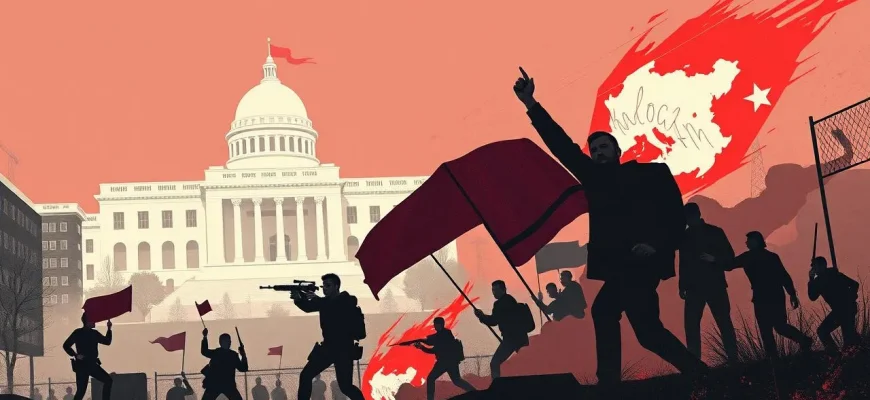In the realm of cinema, few themes are as gripping and thought-provoking as political repression. These films not only entertain but also shed light on the harsh realities of power struggles, resistance, and the fight for freedom. Here's a curated list of 10 action-packed movies that explore these themes, offering both thrilling narratives and deep insights into the human spirit's resilience.

Brazil (1985)
Description: This dark comedy-drama portrays a dystopian society where bureaucracy and surveillance stifle individual freedom, leading to a surreal fight for personal liberty.
Fact: The film's title was inspired by the song "Aquarela do Brasil." Terry Gilliam had to fight Universal Studios to release his director's cut.
 Watch Now
Watch Now 
The Running Man (1987)
Description: In a totalitarian society, a wrongly convicted man must fight for his life in a deadly game show, symbolizing resistance against a corrupt system.
Fact: The film was loosely based on a novel by Stephen King (under the pseudonym Richard Bachman). Arnold Schwarzenegger did many of his own stunts.
 Watch Now
Watch Now 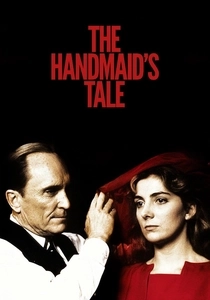
The Handmaid's Tale (1990)
Description: In a theocratic dictatorship, fertile women are enslaved to bear children for the ruling class. The film showcases the struggle for autonomy and resistance against oppression.
Fact: The film was adapted from Margaret Atwood's novel. It was one of the first films to explore themes of reproductive rights and totalitarian control.
 Watch Now
Watch Now 
The Matrix (1999)
Description: While not explicitly about political repression, the Matrix represents a system of control over humanity. Neo's journey symbolizes the fight against an oppressive system.
Fact: The film's "bullet time" effect was groundbreaking at the time. The Wachowskis wrote the script in just three weeks.
 Watch Now
Watch Now 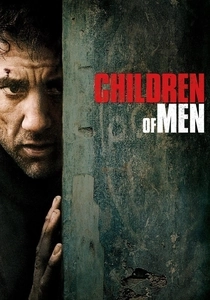
Children of Men (2006)
Description: In a world where humans can no longer reproduce, a former activist helps a pregnant woman escape from a totalitarian government, highlighting themes of hope and resistance.
Fact: The film was shot in London, with many scenes filmed in real locations. It was nominated for three Academy Awards.
 Watch Now
Watch Now 
Equilibrium (2002)
Description: In a future where emotions are outlawed, a law enforcement officer begins to question the regime's control, leading to a rebellion. This film explores themes of totalitarianism and individual freedom.
Fact: The film's gun kata fighting style was developed specifically for this movie. It was Christian Bale's first leading role in a sci-fi action film.
 Watch Now
Watch Now 
The Lives of Others (2006)
Description: Set in East Germany, this film follows a Stasi officer who becomes disillusioned with the regime's surveillance and control, leading to a subtle act of rebellion.
Fact: The film won the Oscar for Best Foreign Language Film. It was Ulrich Mühe's last film before his death.
 Watch Now
Watch Now 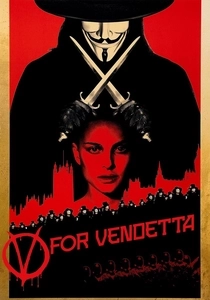
V for Vendetta (2005)
Description: Set in a future Britain under a fascist regime, V, a masked vigilante, seeks to overthrow the government, inspiring a revolution. This film is a powerful allegory for political resistance.
Fact: The film's iconic mask, based on Guy Fawkes, has become a symbol of protest worldwide. The movie was adapted from a graphic novel by Alan Moore and David Lloyd.
 Watch Now
Watch Now 
The Dark Knight Rises (2012)
Description: Batman returns to Gotham to combat Bane, whose reign of terror mirrors political oppression. The film explores themes of revolution and the fight against tyranny.
Fact: The film's opening scene was shot in India, and the football stadium scene was filmed at Heinz Field in Pittsburgh.
 Watch Now
Watch Now 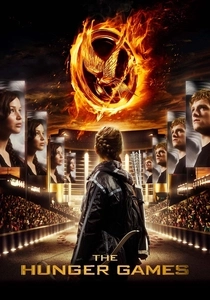
The Hunger Games (2012)
Description: In a dystopian future, the Capitol uses the Hunger Games to control the districts through fear and spectacle. Katniss Everdeen's defiance becomes a symbol of resistance against the oppressive regime.
Fact: The film was shot in North Carolina, and the arena was built on a former military base. Jennifer Lawrence was initially reluctant to take the role of Katniss.
 Watch Now
Watch Now 
